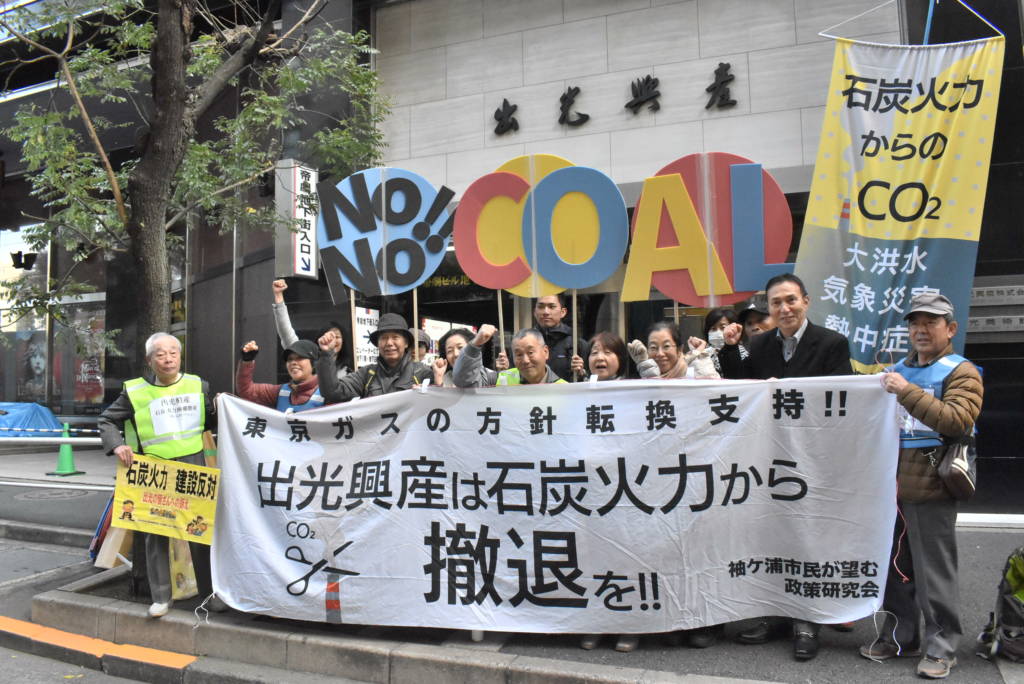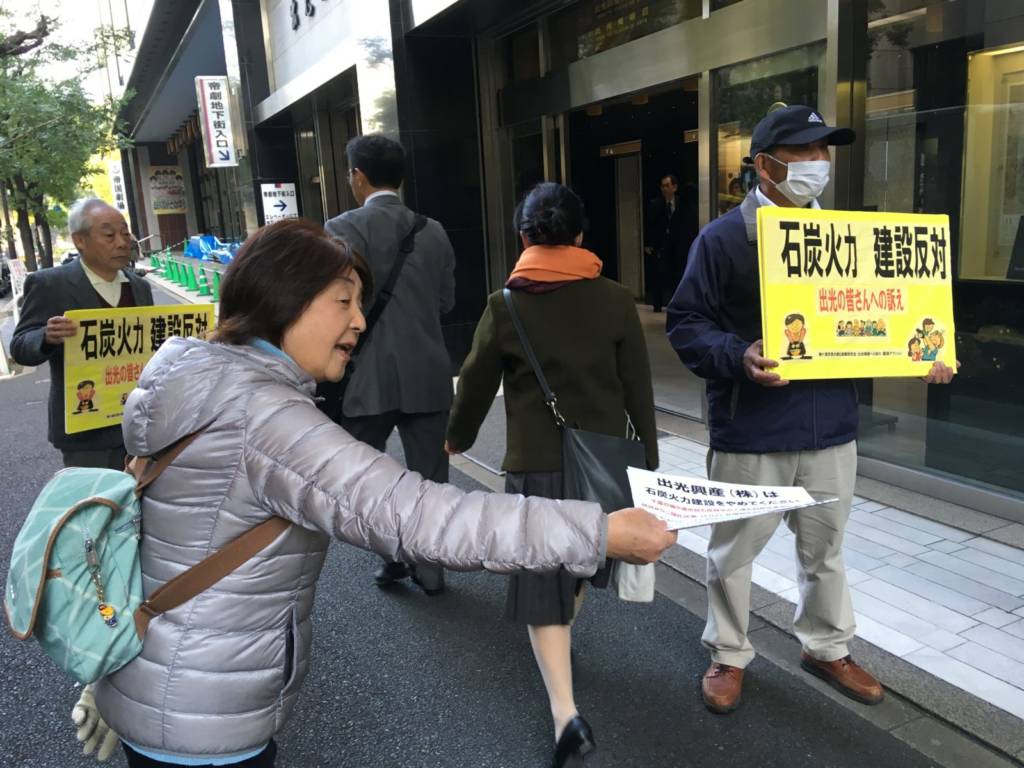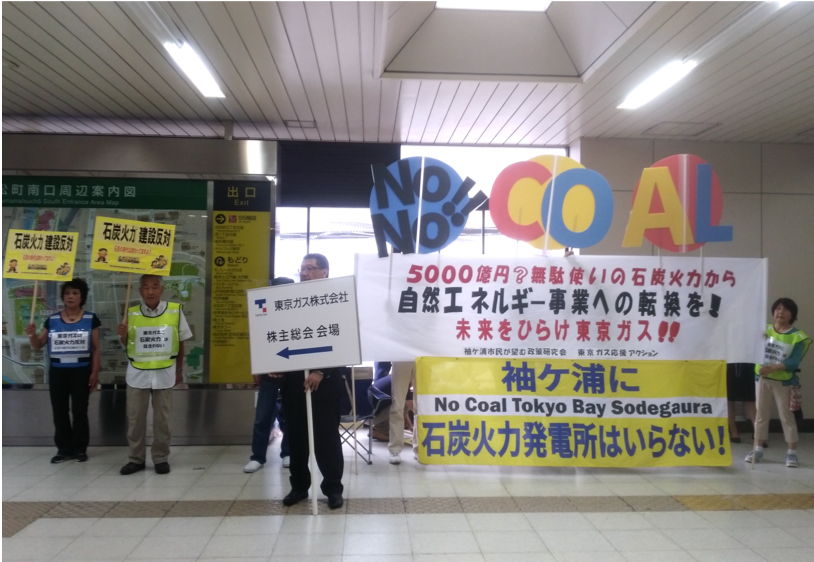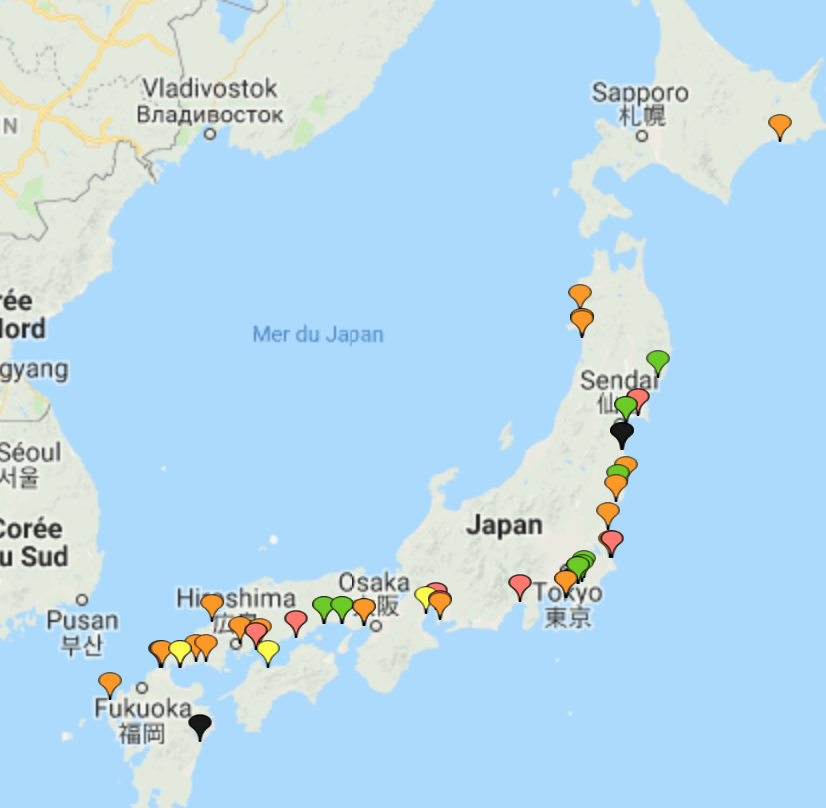For more news like this, sign up for Fossil Free News.
Just 20 kilometers from Tokyo, in Chiba Prefecture, energy companies had set their sights on three new coal power plants (Ichihara, Soga, Sodegaura), to be operational from 2024 to 2026. And they were big – a combined total of 4,070MW.
Those plans were bad news for the climate, and the millions of people living in the area. The winds could spread associated pollution not only in Chiba and populated prefectures around Tokyo Bay, but also to the north of Japan.
But now, energy companies are having to scale back ambitions. Ichihara was canceled in March 2017, Soga was canceled in December 2018 – and now, as of January, Sodegaura is canceled too.
The Sodegaura plan would have installed two 1,000-MW units and put out 12 million tons of CO2 emissions per year. Now, people in groups resisting coal plant development in Japan are celebrating.
It started two years ago, when some people from the local area decided to come together and start fighting. They linked up with nearby groups already resisting other proposed projects, like “No Coal Tokyo Bay”. Supported by non-governmental organizations like Kiko Network, they began targeting Tokyo Gas and informing the public about the plans.
“These people have already suffered from dirty air due to LNG plants and steel companies’ plants in the surrounding area. They said, we can’t build another pollution source.”
They met with and submitted requests to Tokyo Gas, and went out in the streets spreading leaflets almost everyday. They put together educational information on pollution and its health risks, and how the situation looks in the rest of Japan.
“The area where they wanted to put the plant is quite industrial, not so many local residents have the chance to know what is going on in there,” said Suzuki. “Informing the public was very important.”
While the Sodegaura group kept at it, they realized they needed to scale up their actions. By targeting energy companies on the project such as Kyushu Electric Power Company, Idemitsu Kosan, and especially Tokyo Gas, they were able to make their voices louder. They held banners outside Tokyo Gas’ headquarters on the day of the annual shareholder meeting and held a rally at other companies’ offices in Tokyo.
A little over a month ago, Sodegaura was finally cancelled. The energy companies cited “unstable” factors, like potential high cost for environmental measures like carbon prices, in their decision. But Suzuki is confident campaigning was a key factor and that the companies “don’t want to to admit it.”
Concerns persist, though. There’s been talk of putting an LNG (liquified natural gas) plant on the same site.
“The good thing is they cancelled the coal. But LNG, another type of fossil fuel, still produces a lot of CO2 emissions, and Tokyo area’s electricity demand has decreased about 10% since ‘March 11’ and will continue to in the future…it’s not even clear there is a solid business case. The people in Sodegaura are against LNG; they’ll keep working.”
And more coal projects are still on the table in Japan – Kiko counts 50 new units proposed since 2013, in large part due to higher dependency on coal after the 2011 Fukushima disaster. With 109 units already running, not one of the new proposed plants can go ahead if Japan is to stay under its Paris Agreement target to keep warming under 1.5˚C. That’s a tipping point for the world’s natural systems – and already we’re near 1˚C.
“These plants are expected to run for another 30 to 40 years! It’s ridiculous, can you believe it? How can the government say they want to reduce CO2 emissions but allow all this new construction?”
With Sodegaura out of the picture, local group members are still active. They’re sharing information and tactics as the No Coal Tokyo Bay coalition. Kiko Network continues to support various civil group actions in Japan, and voices concern at any opportunity.
NGOs are also focusing on the Japanese banks financing coal and accelerating climate change at home and abroad. This movement pressures banks to withdraw those investments, and asks individuals to switch to a climate-friendly bank.
Recently, major Japanese banks like Sumimoto, MUFG Bank, and Mizuho introduced international coal divestment policies, but they’re not enough to achieve the goal of Paris Agreement. The Let’s Divest movement in Japan, launched by 350 Japan, now counts over 870,000,000 yen in total funds divested.
With the international G20 coming up soon, there’ll be another strategic point for pressure and opportunities for global collaboration between people urging the end of coal.
“We pick up on movements like the Powering Past Coal Alliance and other energy shifts in the world…to show our government how fast people in the rest of the world are stepping away from coal. Obviously Japan is behind and we want government to make big change soon.”
With all the coal on the table in Japan, there’s no doubt the growing anti-coal movement has its work cut out for it. But if the Sodegaura story is any indication, they might just make it.
For more stories like this, sign up to receive Fossil Free News twice-monthly.



